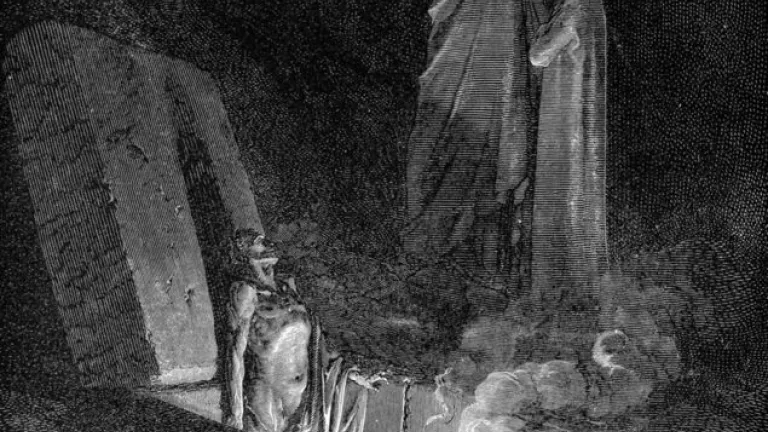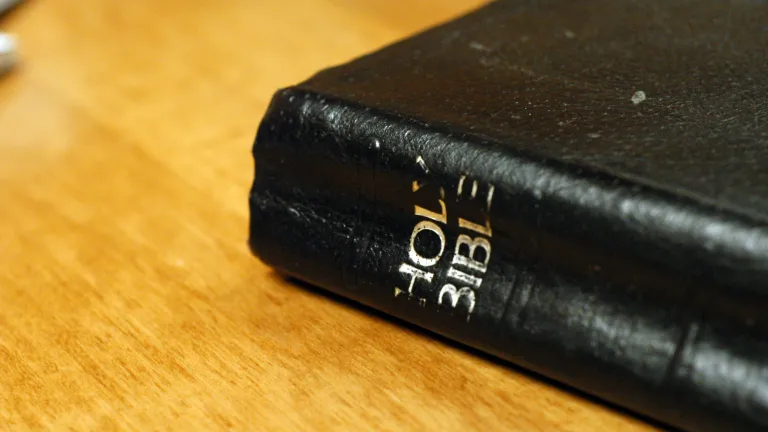Is Judas Iscariot in Hell?

No. Despite his actions and his lingering infamy, we can have confidence from the Word of God that Judas Iscariot is not currently burning in Hell.
Judas Iscariot is a name synonymous with betrayal. Jesus Christ made a powerful statement directed towards him: "Woe to that man by whom the Son of Man is betrayed! It would have been good for that man if he had not been born" (Matthew 26:24)! Judas went on to commit suicide after fully realizing what he had done (Matthew 27:3-5). Does his suicide mean that he's surely in hell, or does it instead prove that he was repentant and therefore in heaven? The answer takes an altogether different approach: Despite his actions and his lingering infamy, we can have confidence from the Word of God that Judas Iscariot is not currently burning in Hell—and the reasons may surprise you!
We can have confidence from the Word of God that Judas Iscariot is not currently burning in hell and that no one will suffer an eternity in hellfire, but rather those who refuse God's way will simply be destroyed.
The outline of future events in Revelation 20:4-15 are crucial to understanding why Judas is not in Hell. This passage describes the time when Jesus Christ will return to the earth and will reign for 1,000 years along with the saints, who are resurrected at that time. The "saints" are the people who God has called out and chosen during their lifetimes. But verse 5 says that "the rest of the dead did not live again until the thousand years were finished" (Revelation 20:5), and the details of this second resurrection are given in Revelation 20:11-15.
One key to understanding this sequence of events—and to understanding why Judas cannot be in hell right now—challenges a common assumption: people are not judged by God immediately when they die. Peter explained in 1 Peter 4:17 that the "house of God" is being judged now. This is how the saints in Revelation 20:4-6 are qualified to inherit eternal life at Jesus' return, while "the rest of the dead" are not judged until later in Revelation 20:11-15.
If the dead have not yet been judged, then no one is in hell at this time, including Judas! But what about when "the rest of the dead" live again and stand for judgment? Will he be condemned to hell then? It's worth examining what exactly we mean by "hell." Many understand hell to be a place of eternal torment where the wicked are punished forever in fire. But the truth of the Bible again challenges this traditional teaching. For example, it says that "the soul that sins shall die" (Ezekiel 18:20) and that God "is able to destroy both soul and body in hell" (Matthew 10:28).
In Romans 6:23, Paul explains the afterlife from both sides of the issue. Firstly, he tells us that "the wages of sin is death"—the unrepentant do not live in everlasting torture! The end of Romans 6:23 contains a contrasting statement that makes the conclusion even more certain: "the gift of God is eternal life." Human beings do not live forever unless they receive God's gift of eternal life.
A person who does not receive eternal life faces what Revelation 20:6 calls "the second death" in the lake of fire. Jesus referred to this same fate as the destruction of the body and the soul in "hell" (Matthew 10:28). The word translated as "hell" in Matthew 10:28 is gehenna, which is the name of a place near Jerusalem where trash was taken to be burned according to one rabbinical source. We can therefore conclude that hell is the place where the bodies and souls of those who will not repent will be destroyed, once and for all, and this will not happen until after the 1,000-year reign of Jesus on the earth.
We can have confidence from the Word of God that Judas Iscariot is not currently burning in hell and that no one will suffer an eternity in hellfire, but rather those who refuse God's way will simply be destroyed. As proof of God's great mercy and love, He offered His Son as a sacrifice for all sinners who reach out to Him in repentance. It is comforting to know that God is on our side; He wants everyone to succeed in obtaining eternal life (Ezekiel 18:32, 2 Peter 3:9). Whether Judas will ultimately be destroyed in the lake of fire is beyond our capacity to know, but we can be sure that the judgment of our merciful God will be righteous, just and fair.






